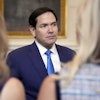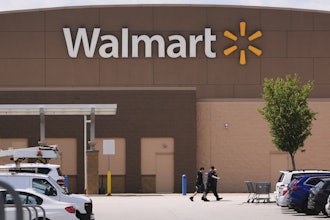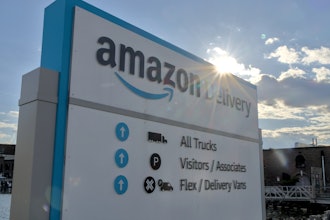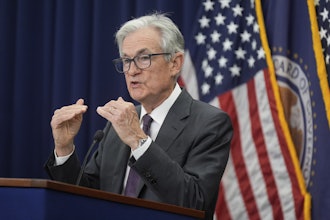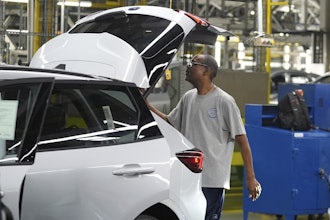DETROIT (AP) — Ford Motor Co. is going ahead with plans to move small-car production from the U.S. to Mexico despite President-elect Donald Trump's recent threats to impose tariffs on companies that move work abroad.
CEO Mark Fields said Ford's plan to move production of the Ford Focus from Michigan to Mexico will proceed, in part because U.S. consumers demand low prices for small cars. The Focus starts at $16,775, which is less than half the average price that U.S. consumers pay for new vehicles.
"It always has to start with the customer. The customer demands a certain level of price and value in that segment, and it's important for us as a company to have financial success with that product," Fields told The Associated Press in an interview Friday.
But Fields stressed that no U.S. jobs will be lost, since the Michigan plant that makes the Focus will be getting two new products.
"If you're a worker in that plant, you now have even more job security because we have two products coming in instead of one," he said.
In a series of tweets last weekend, Trump reiterated a threaten to impose a 35-percent tariff on companies that build new plants abroad and sell products back to the U.S.
"The U.S. is going to substantially reduce taxes and regulations on businesses, but any business that leaves our country for another country, fires its employees, builds a new factory or plant in the other country, and then thinks it will sell its product back into the U.S. without retribution or consequence, is WRONG!" Trump tweeted. "There will be a tax on our soon to be strong border of 35 percent for these companies."
Although Ford wasn't mentioned specifically, Trump did target the company a number of times during the campaign on the issue of trade and U.S. jobs. Trump also praised Ford last month when the company said it won't go ahead with a plan to move production of its Lincoln MKC SUV from Kentucky to Mexico.
Fields said tariffs can't be imposed on individual companies, only entire sectors, so they would wind up hurting the whole auto industry. Nissan Motor Co., General Motors Co., Fiat Chrysler and Toyota Motor Co. are among the other companies that export Mexican-made vehicles to the U.S.
Asked if he was worried about Trump's threats, Fields said, "Of course. We're always looking at what are the risks and opportunities are out there."
But Fields also said he's optimistic that Trump supports pro-growth policies like tax reform and regulatory reform that could help the auto industry.
"We strongly believe that the right policies are going to prevail, because I think we all share the same objective: We want a healthy and vibrant U.S. economy and we're going to continue to do our part to contribute to that," he said.
One area Ford and Trump could see eye to eye on is fuel economy standards. The company criticized the U.S. Environmental Protection Agency last week for its recommendation to keep regulations in place that would more than double automakers' fleet-wide fuel efficiency standards by 2025. The EPA was scheduled to make a final decision in 2018, but rushed its plans into place before Trump takes office in January.
Fields said Ford will make its vehicles as fuel-efficient as possible, and he noted that the company needs to meet even stricter emissions targets in China. But he said automakers want to make sure the standards reflect market realities, like lower-than-expected U.S. gas prices and rising SUV sales. Fields said Ford plans to take up the issue with the Trump administration.
"We're absolutely dedicated to improving the fuel economy of our customers, but doing it in a way that preserves customer choice, that preserves vehicle affordability and preserves American jobs," Fields said.
